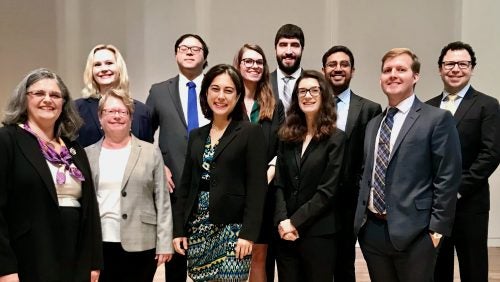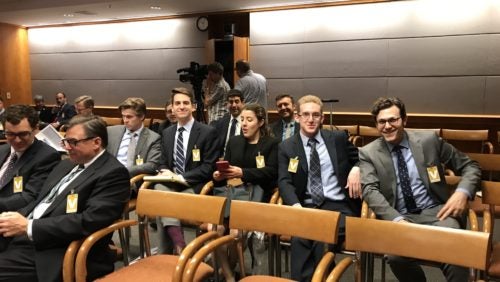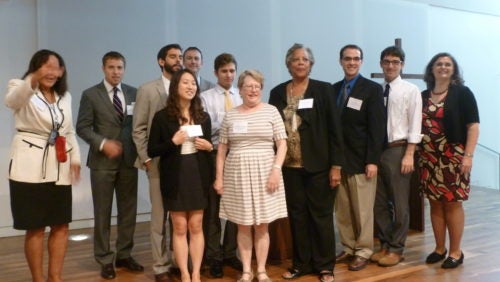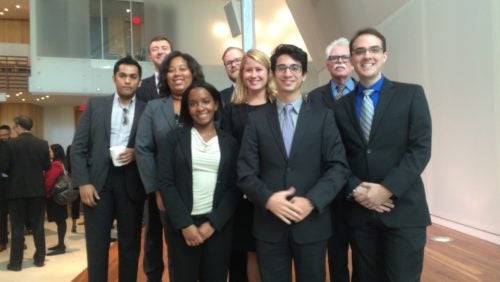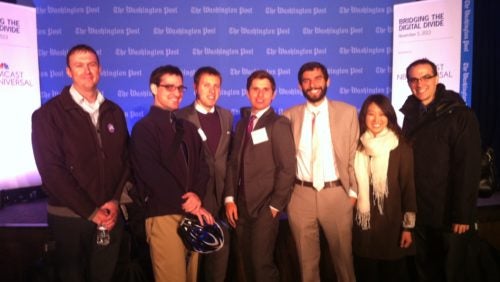Communications & Technology Law Clinic (IPR)
The Communications & Technology Law Clinic works on cases involving the intersection of law, technology, and social justice.
As technology advances, will society harness it to promote justice and equity, or permit it to perpetuate systems of oppression? How can laws and regulations be crafted to help guide us toward the former?
Students in the Communications & Technology Law Clinic spend a semester investigating these questions and conducting technology-related policy advocacy to advance social justice. Our clients include organizations that advance the interests of people of color, people with disabilities, children, and other underrepresented groups. Our practice takes place mostly before federal agencies and federal and state legislative bodies. To provide some illustrative examples, students in the clinic may represent clients:
- advocating for a law that protects people against discrimination in targeted advertising algorithms that determine who learns about different kinds of jobs or housing opportunities;
- petitioning the Federal Trade Commission to adopt regulations that protect children and teenagers from social media design features that drive harmful compulsive use; or
- commenting in response to a rulemaking or public notice from a federal agency urging it to consider the interests and needs of historically disadvantaged communities in developing policies related to privacy, communications, or other technology matters.
The clinic is an “immersion clinic”—students in the clinic work full-time on their cases for a semester. In the tradition of clinical education, student attorneys are expected to own and manage their cases, plan and facilitate meetings and other aspects of case direction, and be the primary point of contact with their clients. They receive mentorship and guidance from Professor Laura Moy and two clinical teaching fellows who also function as staff attorneys, Daniel Jellins and Lauren (“L”) Harriman.
The clinic also has a seminar component that meets twice weekly. The clinic seminar covers substantive issues related to the work of the clinic as well as important skills of effective policy advocacy, such as writing persuasively, developing one-pagers, delivering oral presentations, and interacting with news media.
